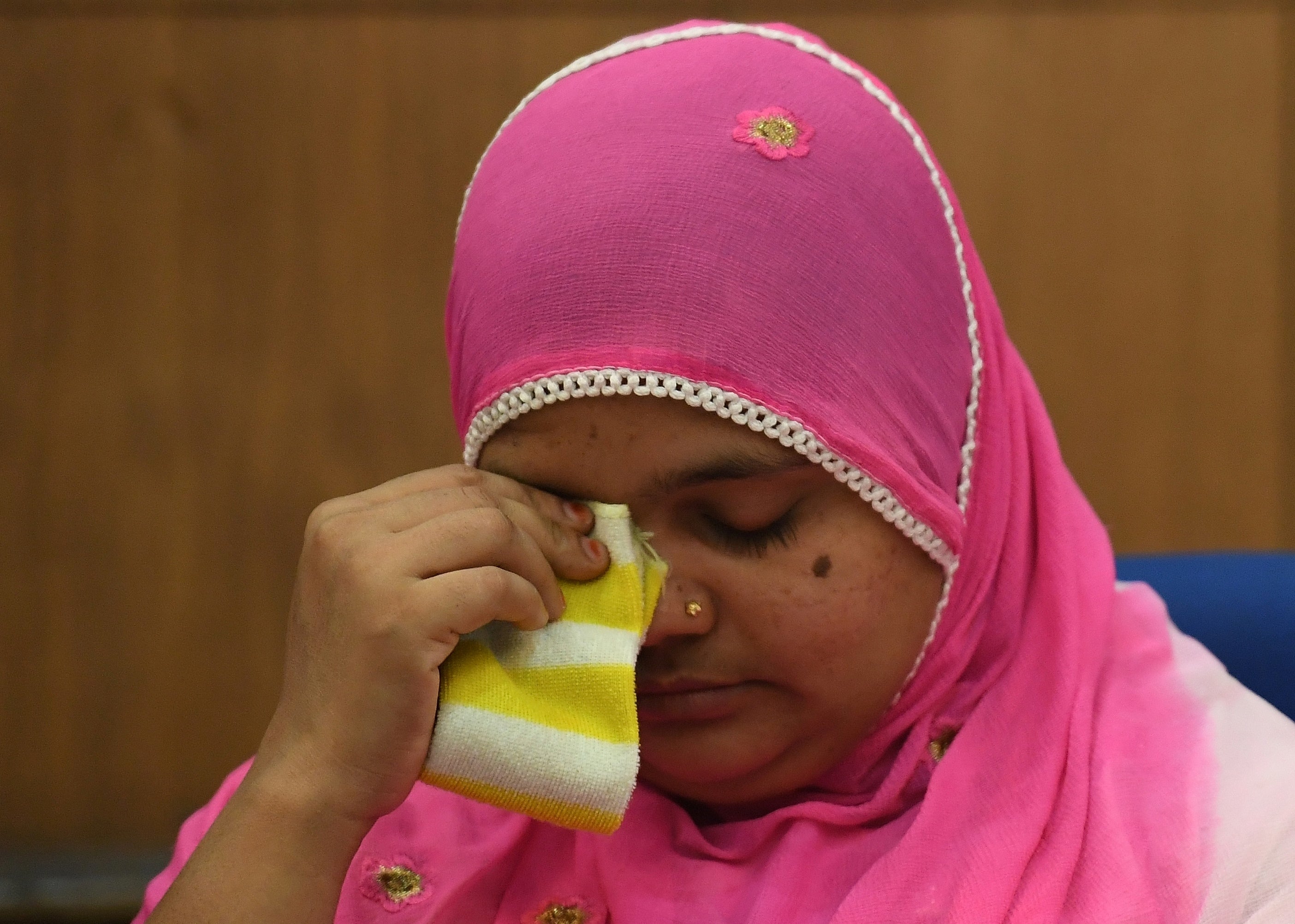Modi accused of siding ‘with rapists’ after government approves release of Bilkis Bano attackers
Convicts were released in a fast-tracked remission on basis of ‘good behaviour’

Indian prime minister Narendra Modi has been roundly criticised for “siding with the rapists” after it emerged that his federal government had approved the premature release of 11 convicts who had gang-raped Muslim woman Bilkis Bano and murdered her family members.
Mr Modi’s Bharatiya Janata Party (BJP) government had approved the release of 11 convicts who were among the mob that attacked Ms Bano and her 14 family members during the bloody 2002 Gujarat riots, according to documents submitted by the Gujarat state government to Supreme Court on Monday.
The Indian leader’s political party is being called out for treating the convicts like “heroes” for a decision slammed as “shameful”.
Rahul Gandhi, a member of the opposition Congress Party, hit out at Mr Modi, whose government had launched a flagship scheme to uplift the girl child years ago.
He said the prime minister spoke of respecting women in speeches, but his actions were not the same.
“He talks about women’s respect from Red Fort, but in reality he is with the rapists. Difference between Prime Minister’s promises and intentions are clear. He has only cheated women,” tweeted Mr Gandhi.
Women rights activist Kavita Krishnan said Mr Modi and his ministers are “rewarding rapists and killers of Muslims from 2002 to 2022”.
The 11 men who were serving life sentences for rape and murder walked free on 15 August, a national holiday to celebrate India’s independence, just after Mr Modi spoke of women empowerment in his annual speech from the Red Fort.
To the shock of many, including the family of Ms Bano, the men were given what many said was a heroes’ welcome, with supporters offering them sweets and honouring them with garlands.
The decision caused massive outrage and more than 6,000 activists, historians and citizens later issued a joint statement, urging the country’s Supreme Court to revoke the early release order and terming the decision a “grave miscarriage of justice”.
The Gujarat state government, which is ruled by Mr Modi’s Bharatiya Janata Party, told the Supreme Court through the submission of documents on Monday that the federal home ministry, headed by Mr Modi’s aide Amit Shah, had approved the fast-track release of the convicts just a month before in July.
The affidavit was filed in court in response to the petitions challenging the remission granted to the prisoners.
The state government said it decided for the early release of the men as they had “completed 14 years and above in prison” and because their behaviour was found to be “good”. It said the federal government had “conveyed (its) concurrence/approval”.
The documents stated that India’s primary investigating agency for domestic issues, the Central Bureau of Investigation (CBI) had opposed the release of the prisoners as early as last year.
Along with the CBI, the police, civil judge and sessions court had opposed the release as well, with the agencies saying they committed “heinous, grave and serious” crimes.
A special judge had said it was the “worse (sic) form of hate crime... committed only on the ground that the victims belong to a particular religion. In this case, even minor children were not spared.”
The request to release the convicts by the state government was approved within two weeks by the home ministry, reported NDTV.
According to lawyers, the Supreme Court, which will hear pleas challenging the sentence remission on 29 November, played a key role in the release.
The court had previously directed authorities to consider a leniency plea by the prisoners under a 1992 remission policy.
On 3 March 2002, Ms Bano, then 21 years old and five months pregnant, was gang-raped in Gujarat’s Dahod district and 14 members of her family, including her three-year-old daughter, were brutally killed.
After the release of the convicts, Ms Bano said her faith in the judiciary and justice was shaken.
“When I heard that the convicts who had devastated my family and life had walked free, I was bereft of words. I am still numb,” she said.
“How can justice for any woman end like this? I trusted the highest courts in our land. I trusted the system, and I was learning slowly to live with my trauma. The release of these convicts has taken from me my peace and shaken my faith in justice,” she said.
Other critics of the Modi government have on social media said the decision was laced with politics, religious discrimination and misogyny.
Many called out the government for going against the premier investigation agency and other officials who opposed the convicts’ release.






Join our commenting forum
Join thought-provoking conversations, follow other Independent readers and see their replies
Comments